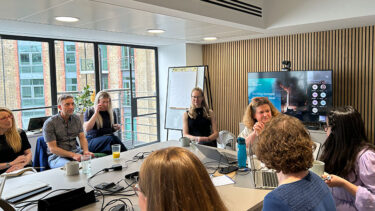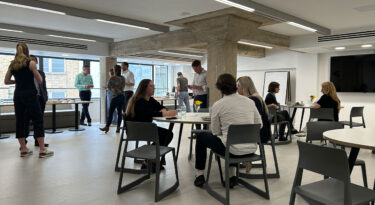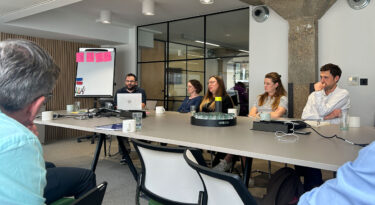Reflections on the SteelZero Event: Decarbonising steel for a net zero future


Michela Ravaglia, Wates Sustainability Business Partner had the pleasure of attending the SteelZero event organised by The Climate Group alongside Bekir Andrews, our Environmental Sustainability Director, and Mark Craig, Regional Director for London Construction.
Industry leaders and experts gathered to discuss the pressing challenges and potential solutions for steel decarbonisation. The debate was thought-provoking and highlighted the critical steps to pave the way toward a net zero transition in the steel industry.

Steel making, which supports various industries, currently contributes to over 7% of global carbon dioxide emissions. As the construction sector advances towards net zero carbon, materials like concrete and steel are under increased scrutiny for their significant carbon footprints. The realisation that the carbon impact of these materials can no longer be ignored is driving the industry to seek sustainable solutions.
The steel industry faces similar uncertainties on how to navigate their decarbonisation that the wider construction industry encountered a few years ago, when net zero and, more generally carbon definitions, were not clear or aligned. For the steel industry this lack of clarity and consistent approach is currently affected by the absence of industry standards, patchy regulation, and the lack of widely adopted tools to measure embodied carbon of materials, from extraction to use.

While the use of Environmental Product Declarations (EPDs) is on the rise, particularly in Europe, there is still a need to establish minimum data requirements, ensure transparency of secondary datasets, and harmonise ISO and EN standards to close gaps in reporting methodologies. The United Nations Industrial Development Organization (UNIDO), through the Industry Deep Decarbonization Initiative (IDDI), is supporting the steel sector by exploring definitions alignment, defining low-carbon emission thresholds, and providing technical guidance on carbon capture, co-product allocation, and reporting emissions at common production steps.
Despite the industry’s awareness of the need for decarbonisation, market demand for green steel needs to materialise more quickly to support the necessary radical shift in production. The Responsible Steel International Production Standard, supported by a global alliance of 160 members and multi-stakeholder organisations, has launched the Steel Standard Principles. These principles aim to align measurement methodologies as a foundation for setting thresholds. The alliance has also identified metrics for decarbonisation at company level, aligned with science-based pathways to net zero, at site level, through decarbonization progress levels, and product level, through PCFs and EPDs.

Collaboration across the construction industry is crucial to accelerating the move towards green steel production. This collaboration must be supported by clear communication of our sustainable targets and requirements to our supply chain, thus influencing green steel demand. Exploring financial mechanisms to support the current premium cost of green steel and leveraging our procurement power and innovative procurement models can also foster supply-demand partnerships.
It was encouraging to see diverse organisations, including steel manufacturers, consultants, developers, and contractors, engaging in the debate on how the industry can support steelmakers through their decarbonisation journey. Together, we can make significant strides towards a sustainable future by fostering innovation, setting clear standards, and driving market demand for green steel.
The path to net zero is complex and challenging, but with collaborative efforts and a shared commitment to sustainability, the construction and steel industries can lead the way in reducing global carbon emissions and achieving a greener future.